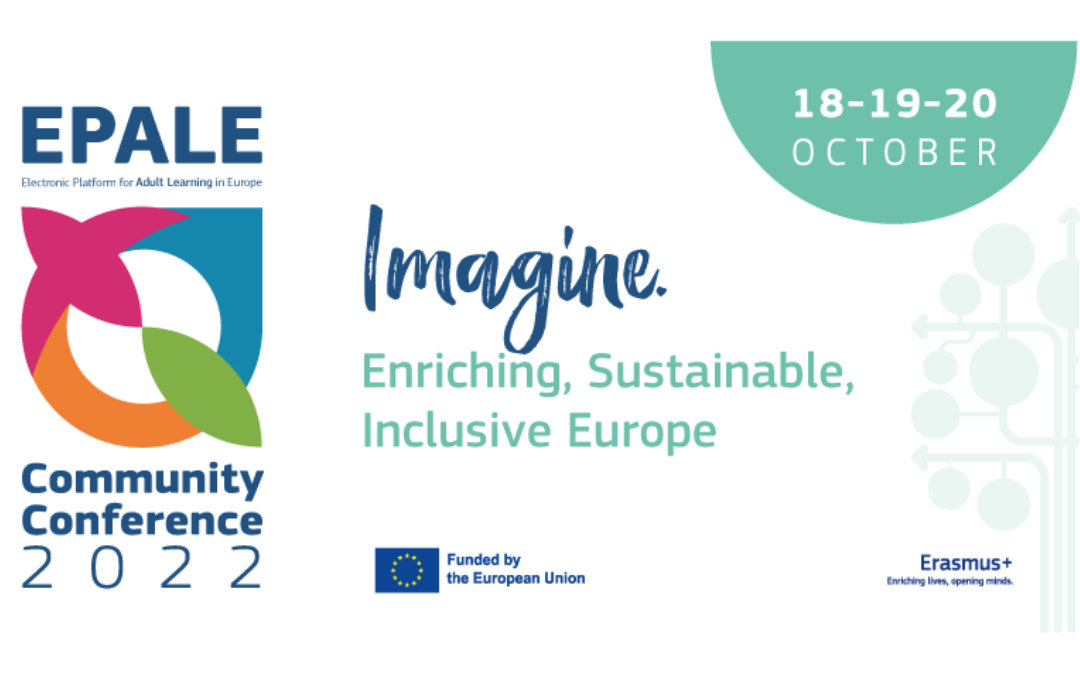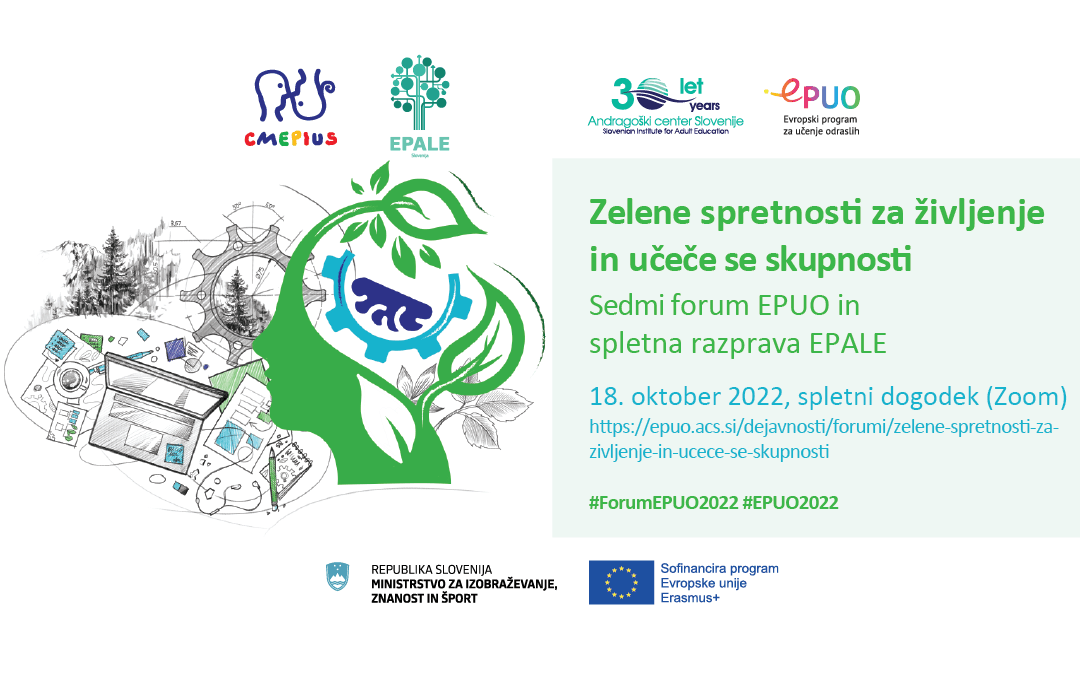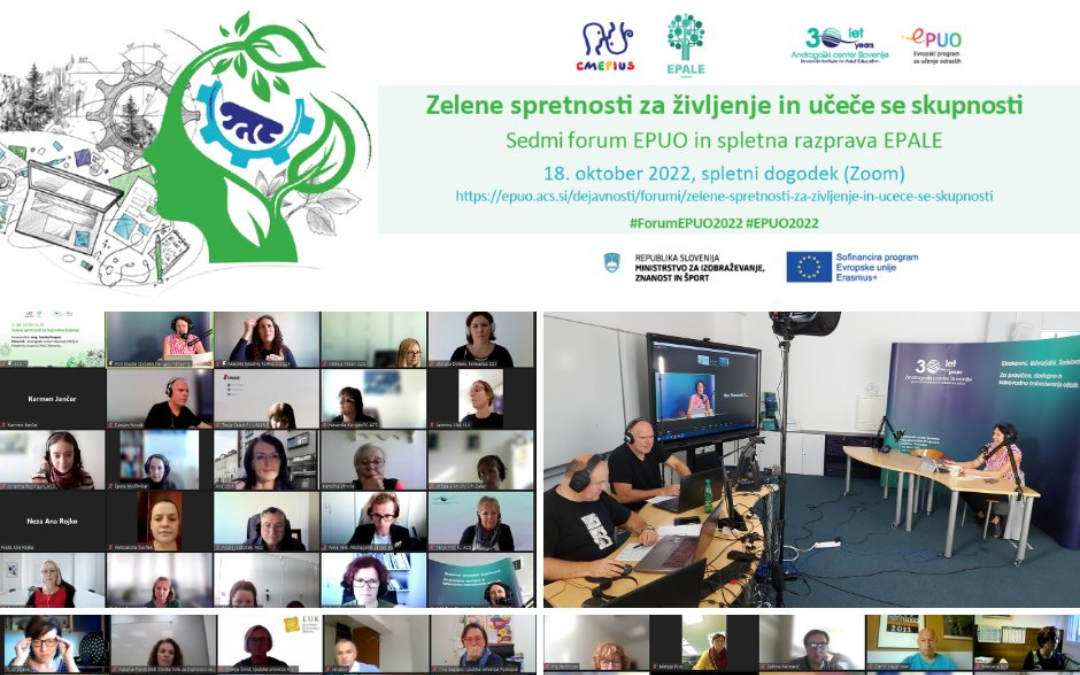We linked it with the EAAL Forum and the EPALE Online Discussion in Slovenian
Between 18 and 20 October, the EPALE online platform hosted a 3-day online conference with the slogan #Imagine EPALE. With this, the EPALE community intended to focus on the power of imagination and adult learning in shaping a prosperous, sustainable and inclusive Europe. Such a future and society cannot be imagined without learning communities, young adults, skills revolution and culture and creativity. We, therefore, discussed these critical topics with essential stakeholders and key actors and devoted a separate part of the conference to each topic.
Among others, we listened to the keynote speaker, Vanessa de Oliveira Andreotti, a professor at the Department of Educational Studies at the University of British Columbia (UBC). She spoke about the limits of modern education in times of hyper-complexity. On the second day, as part of the young adults topic, we listened to İlayda Eskitaşçıoğlu, a feminist, human rights lawyer, youth activist and doctoral researcher specialising in international human rights law at Koç University in Istanbul, Turkey. In her speech, she highlighted how important it is to give young people a voice and the power to express their views. We can only strengthen and encourage the construction of an equal and more inclusive society by considering all community members.
The afternoon part of the second day of the conference was dedicated to the skills revolution. We discussed the importance of life skills and ways to encourage adults to lifelong training. The keynote speaker was an award-winning author, non-profit leader, and education advisor based in New York, an Education Attaché for the Embassy of France to the USA, a researcher at Fondation Maison des Sciences de l’Homme in Paris, and an adjunct professor both at New York University and Baruch College Fabrice Jaumont. He discussed bilingualism by sharing his thoughts on the empowering potential that being able to communicate in a particular language brings. We dedicated the last day to culture and creativity. In conversations with the guests, we established the importance of their role in creating a society that will be inclusive and accepting of diversity. We were also addressed by Giovanni Emanuele Corazza, a full professor at the Alma Mater Studiorum University of Bologna, President of the Fondazione Guglielmo Marconi, founder of the Marconi Institute for Creativity (MIC), Member of the Board of the International Society for the Study of Creativity and Innovation (ISSCI). He presented his view on the importance of culture and creativity in building a sustainable future.
Seventh EAAL Forum and EPALE Online Discussion: Green Skills for Life and Learning Communities
Another exciting speaker was the SIAE associate, Dr Johanna Robinson, who is engaged in citizen science and sustainable practices. She presented the paths towards empowerment with green competences via participation in community observation. Zvonka Pangerc Pahernik, MSc, from the SIAE, an EPALE Slovenia Expert Group member, skillfully moderated the EAAL Forum. We concluded it with examples of good practices: Ajdovščina AEC, Jesenice AEC, Union of Slovenian Organic Farmers’ Associations, Organic fruit farm Sen.
This was followed by the national EPALE Online Discussion moderated by Brigita Kruder, MSc, from Slovenska Bistrica AEC, an EPALE Slovenia Expert Group member. Through discussion, we wanted to learn together for the common good, so we let ourselves be inspired by examples of good practice. Tamara Urbančič, Peter Vidmar and participants of PLYA Postojna presented the project Edible and Sensory Park in Postojna. Next, Mihaela Anclin, UPI – Žalec AEC, described the Going Back to Green Future project. The last speaker was Jaka Kranjc, a representative of Ecologists Without Borders. He says that we learn from the local environment, but more broadly, by getting involved in international, even global, networks. The recording of the entire Forum is available on the website (in Slovenian, with English subtitles).
The event’s message and conclusion can be summed up in one thought: the path ‘from the bottom up’ is more successful in introducing changes in society than the tendency to change legislation. People participate and feel included.
Špela Močilnikar (spela.mocilnikar@cmepius.si), CMEPIUS



